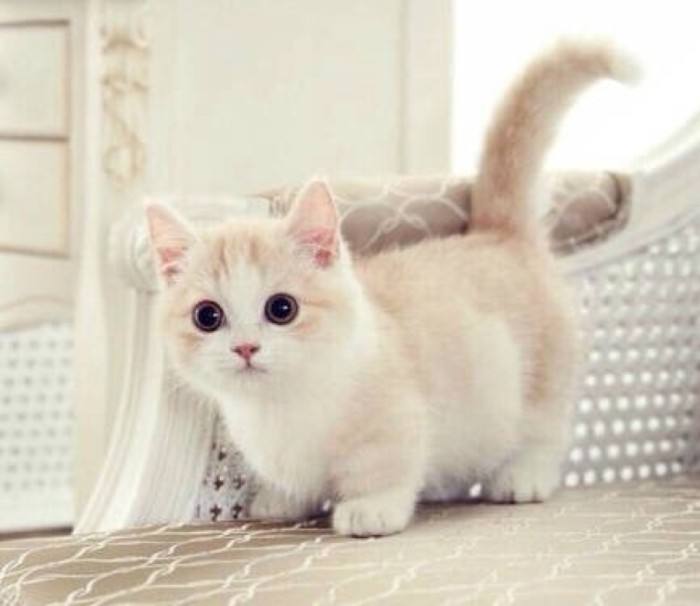(单词翻译:单击)
Dialogue 1
Mark: Jingjing, check out what I got at the supermarket near your office.
马克: 京晶,看看我在你办公室附近那间超市买到了什么。
Jingjing: Pistachios? Those are my favorite nuts. That big jar must have cost a lot.
京晶: 开心果么? 那可是我最喜欢的坚果。这一大罐子一定花了不少钱吧。
Mark: They had a buy-one-get-one-free special.
马克: 他们正好有买一送一的特惠活动。
Jingjing: You lucky dog! I go to that supermarket a few times a week and have never seen nuts on sale.
京晶: 你真是只幸运的狗!(意思是你真幸运!)我每周都会去那家超市几次,但从来没见过坚果打折。
Mark: Are you trying to insult me?
马克: (你怎么说我是狗)你想侮辱我吗?
Jingjing: Huh? Haven't you ever heard that idiom? A lucky dog is someone who doesn't work very hard but has good things happen to them.
京晶: 咦? 你没听过那个俚语吗? “幸运的狗”是指那些不需要做出什么努力,就会有好事发生在他们身上的人。
Mark: Oh, so you're just saying I'm lazy. I see.
马克: 哦,所以你就是说我懒惰咯。我明白了。
Jingjing: Take it easy, Mark. Hey, come to think of it, most idioms in English about dogs have to do with being lazy yet fortunate.
京晶: 放轻松,马克。嘿,仔细一想,英语中大多数关于狗的俚语都与懒惰但幸运有关。
Mark: Yeah, like “it's a dog's life.”
马克: 对,就比如“这过的简直是狗的生活”。
Jingjing: Exactly. You might say, it's a dog's life for foreigners who teach English in China.
京晶: 没错。你可以说,在中国教英语的外国人“简直过的是狗的生活。”
Mark: Hmm. I'll admit we don't have to work especially hard, and still have everything we need. Wait a second, what about “working like a dog”?
马克: 嗯…我承认我们确实不必特别辛苦地工作,就能获得我们所需要的一切。等一下,那“像狗一样地工作”怎么解释呢?
Jingjing: Could you use it in a sentence?
京晶: 你能用它造个句吗?
Mark: Sure. “I'm so tired this afternoon, because I was working like a dog all morning.”
马克: 当然。我今天一整个下午都很疲惫,因为我上午一直都在“像只狗一样地拼命工作”。
Jingjing: Yeah, I guess that means working very hard. Hey, there was one I wasn't sure about: “Love me, love my dog.”
京晶: 对哦,我想这里的含义是指要非常努力地工作。嘿,有一种说法我不是很确定:“爱我,就要爱我的狗。”
Mark: That's a saying, which means if you expect someone to love you, they should love everything about you.
马克: 这种说法也是个谚语,意思是如果你期待某人爱你,他们应该爱你的一切。(相当于汉语的“爱屋及乌”。)
Jingjing: Why does a dog get mentioned in that saying?
京晶: 那为什么要提到狗呢?
Mark: I think it's because some dogs smell bad or behave badly. So, if you love a person, you should accept that about them—even their pets.
马克: 我想这是因为有些狗闻起来很臭,或者行为习惯不好。所以,如果你爱一个人,就你应该接受他们的一切,包括他们的宠物。
“
New words : 习语短语
lucky dog 幸运儿
a person who doesn't try very hard but is still fortunate
idiom 俚语
a phrase that couldn't be understood from the dictionary meanings of the words, and is rather tricky to use
it's a dog's life 不用特别辛苦工作,也能过得有模有样
not having to work very hard, but still having everything you need
working like a dog 特别努力工作,尤其体力工作
working very hard, doing work that is tough physically but doesn't make you think much
Love me, love my dog. 爱屋及乌
Love everything about me, accept me totally.
saying
谚语,格言
a certain sentence that expresses wisdom or an attitude (i.e. “Don't put all your eggs in one basket.”)
Dialogue 2
Jingjing: We talked about dogs. What about cats?
京晶: 我们谈到了很多关于狗的俚语。那猫的呢?
Mark: A lot of those are negative. People tend to think of cats as bad luck, or as selfish.
马克: 很多关于猫的俚语都是负面的。人们倾向于认为猫代表坏运气,或自私。
Jingjing: I wish more people would understand cats.
京晶: 我真希望更多的人能正确地了解猫。
Mark: Me too. Nevertheless, when you say someone is being catty, it means they sound like they are being polite, but they are really insulting you and being mean.
马克: 我也是。尽管如此,当说到某人像猫(一样狡猾)的时候,通常是指他虽然表面上听起来很有礼貌,但实际却是在刻薄地侮辱你。
Jingjing: That reminds me of another idiom I'm not sure I understand. “Let the cat out of the bag”—I know it's about telling a secret; but why a cat and why a bag?
京晶: 这让我想起了另一个我不太明白的俚语:“把猫从袋子里放出来”——我知道它的意思是泄露、揭开秘密; 但是这跟猫和袋子有什么关系呢?
Mark: I read somewhere that it was about merchants at a market. Pigs were usually sold in bags. And, when one guy accidentally opened a bag before buying it, there was a cat.
马克: 我在哪儿读到过,这种说法缘起于市场上的商贩。通常在市场上装在袋子里出售的是猪,但当一个顾客在付款之前不小心打开一个袋子时,却发现在里面的是一只猫。
Jingjing: Oh, so it's about a disappointing surprise.
京晶: 哦,所以这句俚语可以指泄露了令人失望的消息。
Mark: Yeah, if someone told you what your birthday present was going to be, and the gift was something like a cheaper mobile phone than the one you have now, you might say they let the cat out of the bag.
马克: 对,比如有人告诉你,他要送你的生日礼物是一部手机,但是比你现在用的手机更廉价的那种,你就可以说对方“把猫从袋子里放了出来”。
Jingjing: Hmm, I know sometimes guys are referred to as cats.
京晶: 嗯,我还知道有时候可以把男人引用称为猫。
Mark: Yeah, it's a slang term that means “guy”, as in, “he's a cool cat”.
马克: 对,有一个俚语就是把一个男人比喻做“一只很酷的猫”。
Jingjing: That doesn't sound very negative.
京晶: 这种说法听起来并不负面啊。
Mark: That's right. It'd be about a guy you don't know very well; but you think he's sly and able to handle himself in most situations.
马克: 没错。它是形容一个人你不太了解,但你感觉他很圆猾,无论什么情况都能应付自如。
Jingjing: Ok. One more, what about the Cheshire cat?
京晶: 这样啊,好吧。还有一个俚语,“柴郡的猫”是什么意思?
Mark: Oh, that's a reference to Alice in Wonderland. If someone has a big smile, because they're confident about something, but you don't know what it is, you could say they're smiling like the Cheshire cat.
马克: 哦,那是来自《爱丽丝梦游仙境》的一个典故。如果某人咧嘴笑得很开心,因为他对某事很自信,但是你并不知道背后的缘故是什么,你就可以说他笑得像“柴郡的猫”。
Jingjing: That sounds good. I guess cats aren't getting such a bad rap after all.
京晶: 听起来不错。这样一说,猫的名声似乎也没那么坏嘛。
Mark: Yeah, English idioms are kinda tricky.
马克: 是啊,英语的俚语挺有些复杂难懂的。
New words : 习语短语
(being) catty 说话表面客气,实则恶毒的
speaking politely but insulting someone in a mean way
let the cat out of the bag 走漏风声,泄露秘密
make a secret known to others, typically if it turns out to be disappointing
slang 俗语
a word that has a meaning different from the dictionary with certain groups of people
reference 提及,引用,参照
the name of a popular movie or book character, used to describe a person you know (among other things)
a bad rap 坏名声
a bad reputation, a way someone or something is often described badly


